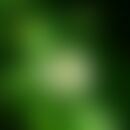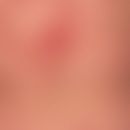Synonym(s)
DefinitionThis section has been translated automatically.
Cola trees are a genus of plants in the stink tree subfamily (Sterculioideae) within the mallowfamily (Malvaceae). The cola tree is a tree up to 25 meters high, which is native to sub-Saharan Africa, India and South America. The fruit of the tree, the so-called kola nut, is not a nut but the seed of a bellows fruit. This is a valued stimulant due to its stimulating effect. Supplying countries are Nigeria and other West African countries.
The dried seeds(cola seeds) of two different cola species are used phytotherapeutically: Cola nitida and Cola acuminata. Cola nitida is a 10 to 15 m high tree with an unbranched trunk, Cola acuminata is up to 20 m high and is only sparsely leafy, the branching begins just above the ground.
Ingredients: Cola seeds contain caffeine (approx. 2.5 %), theobromine (0.1 %); catechin and epicatechin, tannins and oligomeric procyanidins, starch approx. 40 %; also contains small amounts of proteins, sugars and minerals.
HMPC monograph: Traditional use: States of exhaustion and weakness
ESCOP monograph: Short-term physical and mental fatigue
Commission e-monograph: Mental and physical fatigue
General informationThis section has been translated automatically.
Cola nitida is the parent plant of Colae semen (kola nut). The cola tree has become very well known thanks to the mixed drink "Coca-Cola". Due to the high demand in the last century, the number of cultivated cola trees has increased enormously, especially in the West African countries that export the cola nut.
Extracts from the cola nut (Cola nitida extract) are used in cosmetic products, e.g. as cellulite active ingredients.
Contraindication: gastric and duodenal ulcers, high blood pressure, cardiac arrhythmia, hyperthyroidism, insomnia. Allergy to any component.
Not recommended for children and adolescents, also during pregnancy and breastfeeding in the absence of safety studies.
LiteratureThis section has been translated automatically.
- https://arzneipflanzenlexikon.info/kolabaum.php
- https://www.ema.europa.eu/en/documents/herbal-monograph/final-community-herbal-monograph-cola-nitida-vent-schott-et-endl-its-varieties-cola-acuminata-p_en.pdfhttps://www.ema.europa.eu/en/documents/herbal-monograph/final-community-herbal-monograph-cola-nitida-vent-schott-et-endl-its-varieties-cola-acuminata-p_en.pdf



